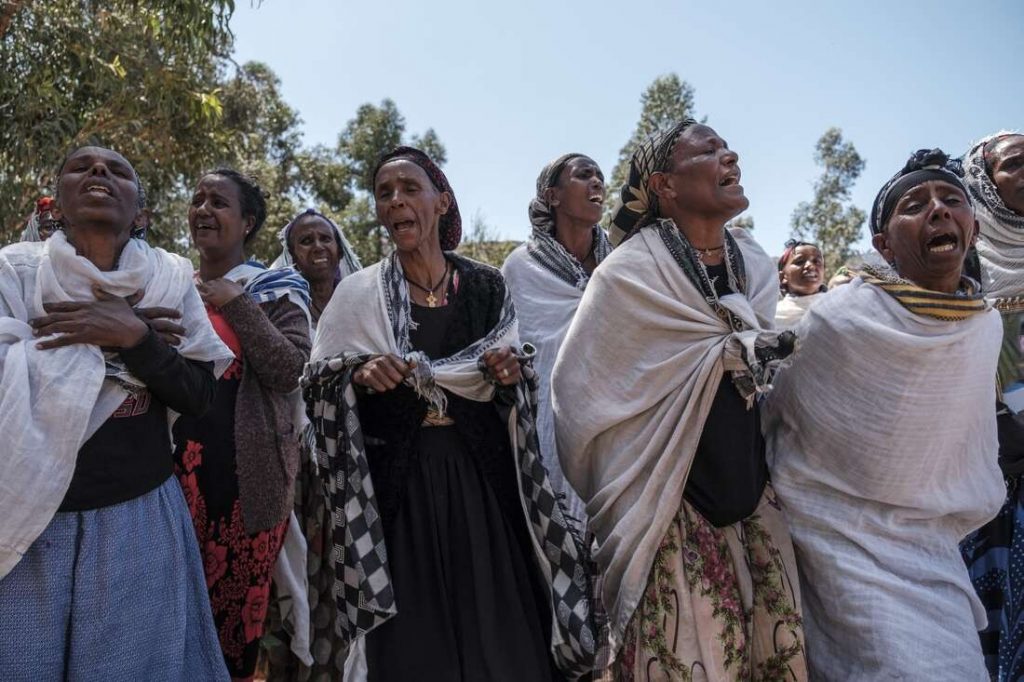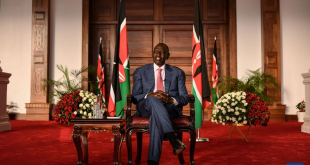
This is in the hope of locking out the inclusion of other entities outside of the continent.
The Ethiopian government has agreed to the African Union’s involvement in investigations of allegations of human rights violations in the northern region of Tigray. This is in the hope of locking out the inclusion of other entities outside of the continent.
Last week, Prime Minister Abiy Ahmed said his country was willing to have any continental institutions included in the investigations where his troops and those of Eritrea have been accused in multiple reports of atrocities against civilians.
On March 11, Ethiopian Foreign Minister Demeke Mekonnen met with African Union Commission chairperson Moussa Faki where they agreed to include the African Commission on Human and People’s Rights.
The Commission is supposed to work with the Ethiopian Human Rights Commission. “The principle of the investigation was proposed by Prime Minister Abiy during a Summit-level meeting of the AU Peace and Security Council held on March 9,” a dispatch from Mr Faki’s office said.
The move came two days after Prime Minister Abiy addressed the AU Peace and Security Council, chaired by Kenyan President Uhuru Kenyatta, in which he chided the West for “admonishing” his country.
“Ethiopia’s insistence and call to her brothers and sisters to adopt our ‘African Solutions to African Problems’ approach is a call to assert our capacity to hold one another accountable when we need to without the domination of those asserting moral righteousness over us,” he told the session on March 9 in an address labelled as AOB.
“Ethiopia stands ready to enable continental institutions and instruments we have set up as Africans to function.” However, Prime Minister Abiy’s call for pan-African solidarity followed damning reports by both Amnesty International and the Human Rights Watch, who accused Eritrean troops of maiming, raping and killing civilians alongside Ethiopian forces.
Eritrea officially denies the allegations and accuses the rights watchdogs of refusing to hear Asmara’s version of the story. Addis Ababa criticised the methodology used in collecting information, and suggested the informants may have been biased. It nonetheless vowed to investigate the matter. On Wednesday, Ethiopia took at least 50 diplomats accredited to Addis Ababa to Makelle as part of efforts to fight back the allegations of hindering humanitarian aid delivery.
But the US continued to demand that Eritrean troops and Amhara militia leave Tigray as soon as possible. Appearing before the Foreign Relations Committee of the House of Representatives in the Congress, Secretary of State Antony Blinken suggested there had been “ethnic cleansing” in Tigray, and demanded an independent investigation into the matter.
“I very much understand the concerns, for example, that the [Ethiopian] Prime Minister had about the TPLF and its actions, but the situation in Tigray today is unacceptable and has to change,” the US diplomat told the Committee.
He suggested that Ethiopia should deploy forces “that will not abuse the human rights of the people of Tigray or commit acts of ethnic cleansing, which we’ve seen in western Tigray.”
“We need to get an independent investigation into what took place there, and we need some kind of process, a reconciliation process so that the country can move forward politically.” However, with the choice of the African Commission on Human and People’s Rights, there is little chance perpetrators could be brought to justice.
The 11-member Commission, based in Banjul, the Gambia, is a quasi-judicial organ that is meant to protect human rights in Africa as well as interpreting and considering complaints on violations of the African Charter on Human and People’s Rights.
The commission, currently chaired by Ethiopian Solomon Dersso, can investigate rights violations, but lacks any powers for enforcement, meaning they rely on individual member states to act. In fact, traditionally, the Commission often recommends rather than directs action. In its 33-year history, no member state has ever filed a petition for interpretation, regarding the Charter on African Human and People’s Rights.
The East African
 Africa -China Review Africa -China Cooperation and Transformation
Africa -China Review Africa -China Cooperation and Transformation
